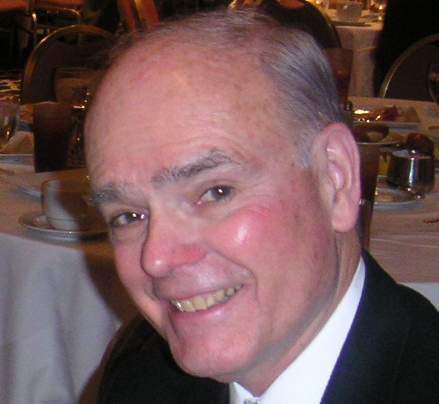Edwards – Chicago 2004 Welcoming Remarks
Lee Edwards
Welcoming Remarks
40th! Anniversary Gala

The Philadelphia Society
Chicago, Illinois April 30, 2004
"It’s a beautiful morning in Chicago and a great day to be
alive." That’s how one of the most popular DJ’s in Chicago used to begin
his morning radio program, and I offer a slight variation as the beginning of my
brief remarks: It’s a beautiful evening in Chicago and a great day to be
alive–especially if you’re a member or a guest of the Philadelphia Society,
celebrating our 40th national meeting.
Once asked why we were called the Philadelphia Society, the irrepressible
Ben Rogge responded, "Because [our] annual meetings are always held in
Chicago." That was the case from 1965 through 1986, although we have found
other venues since then. But why
Chicago?
Its central geographical location is one obvious reason, and in previous
years one could get fairly decent rates at venerable establishments like the
Drake, where the bathroom was as big as your average living room.
But there is a more telling reason: Chicago has served as the
center of the conservative movement for much of the last forty years and more.
Chicago is, after all, the birthplace of Modern Age, still the
most important journal of conservative thought in America. It was the longtime
home of the Henry Regnery Company, which published, among other seminal
conservative works, The China Story by Freda Utley, God and Man at
Yale by William F. Buckley Jr., and The Conservative Mind by Russell
Kirk. All three, by the way, were best-sellers.
Chicago counts among its
institutions of higher learning the University of Chicago, whose faculty
includes five Nobel Laureates in economics–all free marketers–and whose press
has published such conservative classics as The Road to Serfdom by F. A.
Hayek, Ideas Have Consequences by Richard Weaver, and Capitalism and
Freedom by Milton Friedman.
Chicago is a city of meetings and conventions–political, fraternal,
medical, academic, and conservative. It was here (at the 1960 National
Republican Convention) that Barry Goldwater told fellow Republicans that he
believed conservatives could take over the GOP if they worked hard enough. It
was here (at an ISI seminar) that Richard Weaver discussed the "common
ground" of conservatives and libertarians–a respect for constitutional
government with its list of "thou shalt nots."
It was here at our first national meeting that Milton Friedman, Stanley
Parry, Frank Meyer, Russell Kirk, George Stigler, Eliseo Vivas, Robert
Strausz-Hupe, L. Brent Bozell, and Warren Nutter discussed "The Future of
Freedom: Problems and Prospects," concluding that ideology and fanaticism
are always to be feared and conservatives must rely on reason to combat liberal
ideology, a not so pale reflection of socialist totalitarianism.
It was at a Society meeting that Irving Kristol, former Trotskyite, first
gave public notice that he was no longer one of them but one of us.
And it was here in Chicago at the 22nd national meeting that Stephen Tonsor
explained, pungently, why he was not a neoconservative. It was here at our 30th
national meeting, 1994, that Milton Friedman, ever the optimist, suggested
"there is a tendency to underestimate the power of ideas because of the
length of time it takes for them to work." He still believed that the
"American people are not going to stand for a conversion of our society
into a wholly centralized, socialized, collectivist society."
Perhaps the question should be, Why not Chicago as the locus of
our meetings?
Let us give thanks for the last great American city, the home of Richard
J. Daley, Saul Bellow and Al Capone, where the hamburger, crackerjack and deep
dish pizza were first served, the place that Billy Sunday couldn’t shut down,
site of the first mail-order house, the first controlled atomic reaction, and
the world’s tallest building, and, most important of all, the place where the
late great Don Lipsett, our inestimable founding secretary, compiled "A
Listing of Important Laws," which include:
. John Ryan’s Law of Public Oratory: "Everybody except me speaks too
long."
. William Rusher’s Other Law: "When you find a good thing, run it
into the ground."
. The Harris Law of Nugatory Achievement: "If a thing isn’t worth
doing, it isn’t worth doing well."
You
can’t always count on your friends, but you can always count on your
enemies."
That’s why we’re here tonight in
Chicago.
